Ethical Powerful “Pharma -Physician- Patient” Relationship. How Pharmaceutical industry can ethically collaborate with Physicians to enhance Clinical outcomes and Patient experience?
Lately there has been a lot of denunciation and criticism around the alleged relationship (misinterpreted as nexus) between doctors (physicians) and pharmaceutical / allied health sector industry. The media has time and again highlighted this issue which has resulted in a perception that all doctors advise and write prescriptions with ulterior motives. Even the Hon. Prime Minister felt compelled to speak about this at a public forum last year. This arguably is the single most important factor that has eroded the public’s trust on doctors and contributed to the destruction of the “doctor-patient” relationship.
A majority of doctors are either unaware or at best have a superficial and partial knowledge of the law or rules governing their professional relationships with the pharmaceutical / allied health sector. I have summarised para 6.8 of the latest “Indian Medical Council -Professional conduct, etiquette and ethics regulations” that outline the code of conduct for doctors and professionals while dealing with pharmaceutical and allied health sector industry.
You can download a copy by clicking here.
Recently, the Hon. Minister of Health and Family Welfare stated in parliament that the CEOs and Managing Directors of pharma companies would be held personally responsible and action taken against them, in case of infractions by their company to this act. Hoping that the act is enforced properly in letter and spirit (I personally look forward to it) this will be a welcome cleansing of the industry!
However, does this mean that Pharma and Doctors cannot meaningfully work together to provide better services and care for their patients? I disagree. There are many ethical and powerful ways that
Let us start by listing major needs of patients and physicians today. Thanks to the Chronic and life style diseases epidemic the patients’ requirements have changed and managing them is no longer about “curing” them but ensuring minimal deterioration of their health. The other area is Access – a vast majority of patients do not have access to doctors especially specialist doctors.
Regarding doctor’s needs – they have little knowledge of Non- Clinical skills and competencies as these are not part of any medical curriculum, but are now critical for success e.g. communication skills. The other major area is
Based on just these major requirements of both the physician and the patient, I offer a few concrete ways for Pharma to engage and contribute towards better patient care.
Patient E
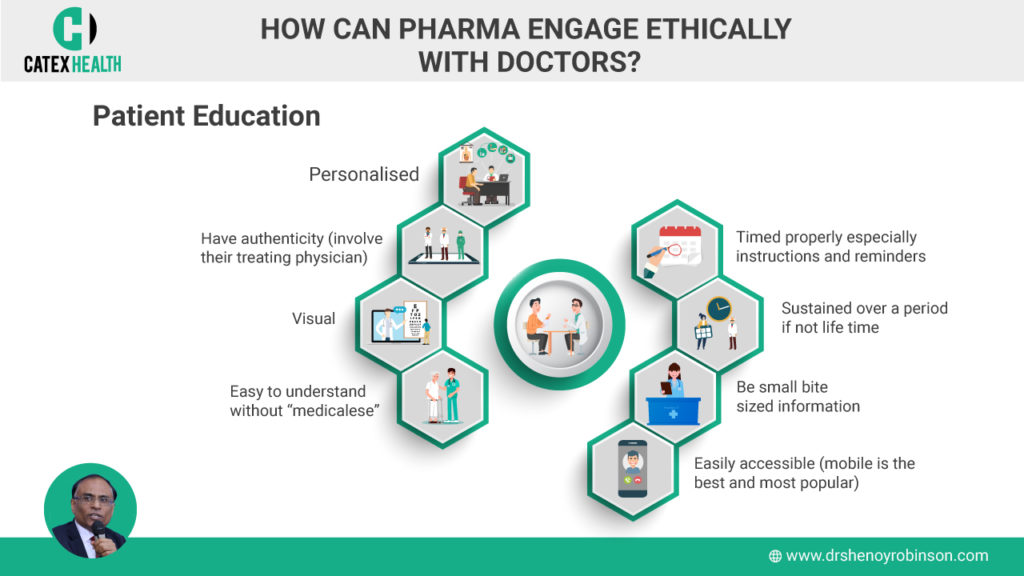
This is a an easy one and most pharma companies have been dabbling in this area with varying degrees of success. However for patient education to be successful, it should be:
- Personalised
- Have authenticity (involve their treating physician)
- Visual
- Easy to understand without “medicalese”
- Timed properly especially instructions and reminders
- Sustained over a period if not life time
- Be small bite sized information
- Easily accessible (mobile is the best and most popular)
I am enclosing a few samples of what excellent patient education can look like. These are samples of what we at Catex Health are providing. Pharma can collaborate with doctors and contribute towards patients’ education in a massive way. Not only is this ethical but will be a great service as it will increase patient compliance and help to improve clinical outcomes and reduce complications in a big way.
Visit Catex Health
Patient Monitoring
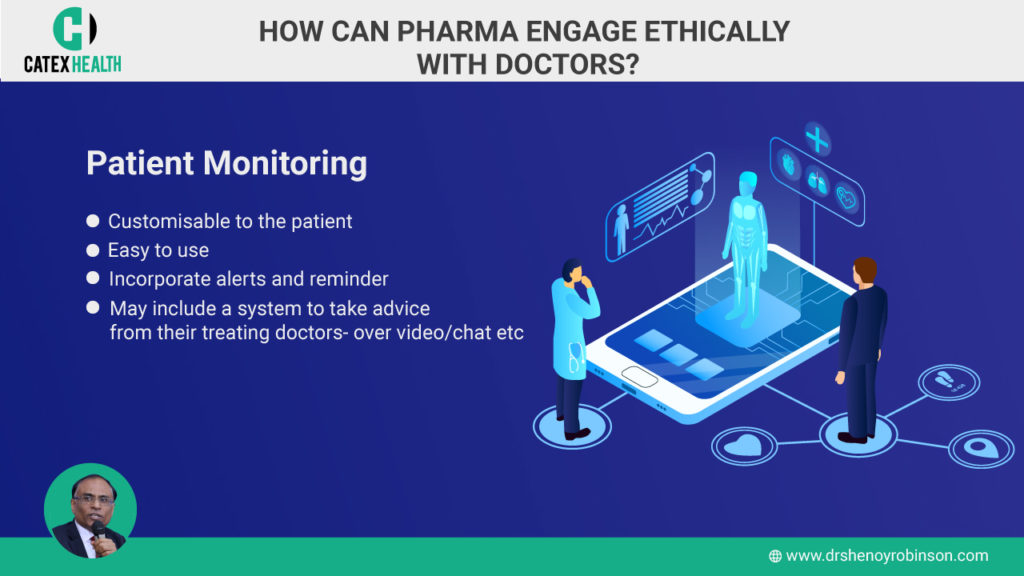
Chronic diseases require patients to monitor their health – the parameters vary with the disease and its severity. Providing an easy method to do so would be a great boon for patients. So, an effective patient monitoring service needs to be:
Customisable to the patient- Easy to use
- Incorporate alerts and reminder
- May include a system to take advice from their treating doctors – over video/chat etc.
Are such platforms available? Yes, in case you desire more information please contact me directly.
Access
How about providing easy access for screening consultations, second opinions or follow ups from the comfort of the patient’s home or their town? This need not be free but can be self-sustaining.
Key Success Factors
For successful on the ground implementation of these 3 solutions, two key factors are critical:
- Integration and Comprehensiveness
- Ensuring physician enrollment
Integration and Comprehensiveness
Patients suffering from Chronic Life
Ensuring Physician Enrollment
Physician involvement and enrollment is necessary as they provide the authenticity of the content, advice and treatment as and when needed. But physicians are most reluctant to adopt new “stuff” as they have little knowledge and are risk averse. We must educate them on how this will help them to get better clinical outcomes, enhance patient satisfaction, strengthen their relationships with patients, all of which ultimately contribute to the success of their practices.
So how about conducting Medical Education
- An expert Facilitator/Speaker
- Highly interactive
- End with an action plan for each participant
Here is a suggested list of subjects that are important for physicians’ to succeed today:
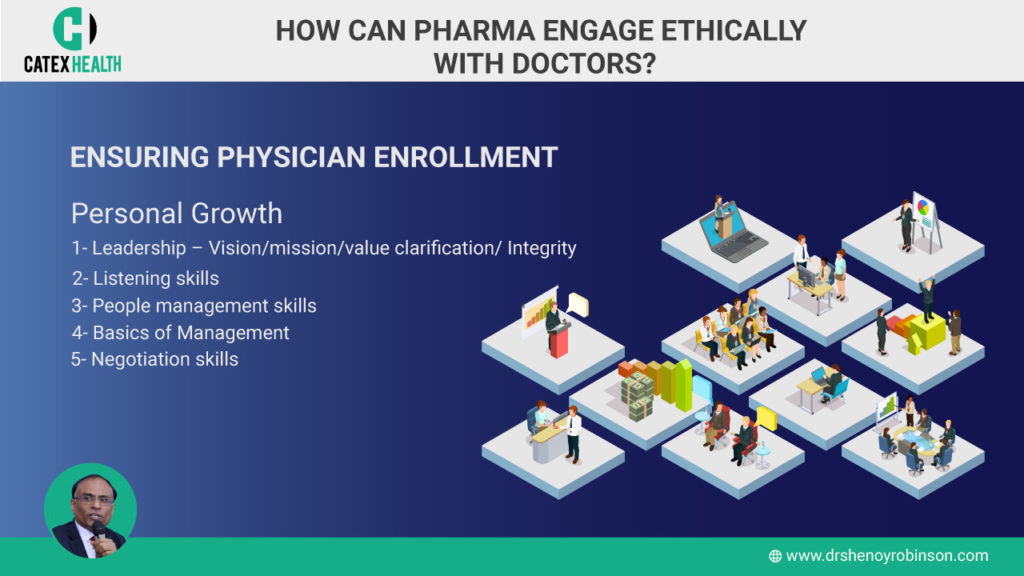
- Personal Growth
- Leadership – Vision/Mission/Value Clarification/ Integrity
- Effective Communication
- Listening skills
- People management skills
- Basics of Management
- Negotiation skills
- Management skills
- How to use digital technologies in medical practice?
- How to market ethically?
- How to establish and grow a medical practice
- Entrepreneurship
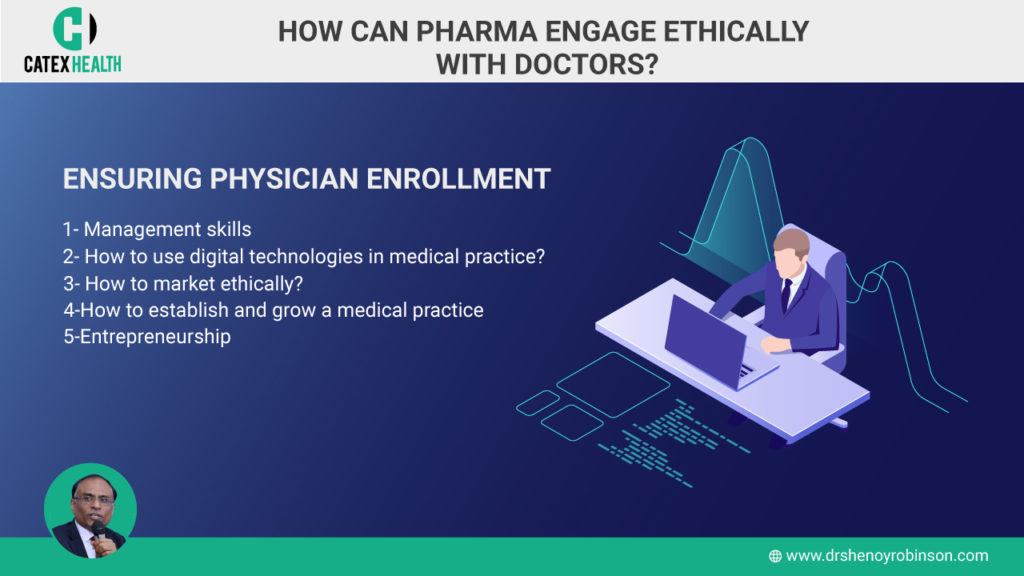
Conclusion
Pharmaceutical companies can adopt a dual approach to how they engage with doctors ethically and professionally.
- Provide platforms for patient engagement – education and monitoring
- Educate physicians on Non – Clinical subjects
These approaches have the ability to serve as
I would be happy to provide advice and solutions on the above.

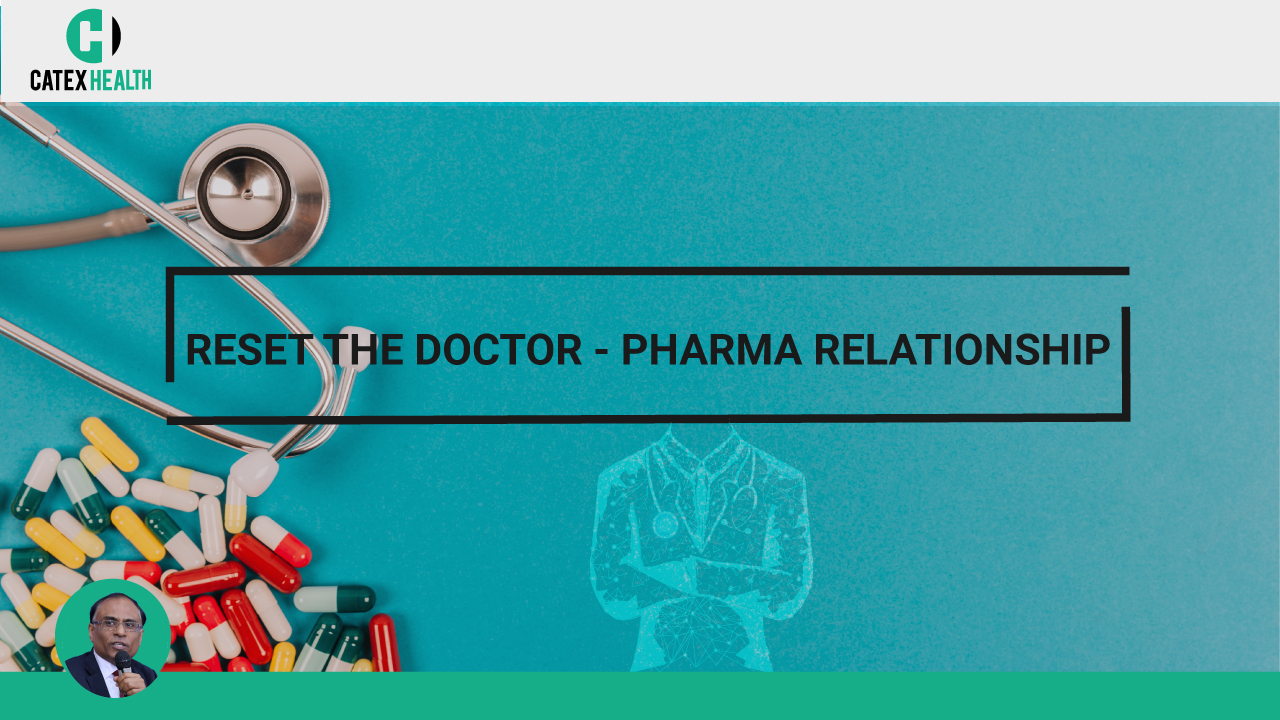

Very thoughtful, innovative and nice.
Thank you.
Insightful article!
Thank you
Very informative…
Thank you
Really well written, encompassing all the aspects of the pharma-doctor relationship.